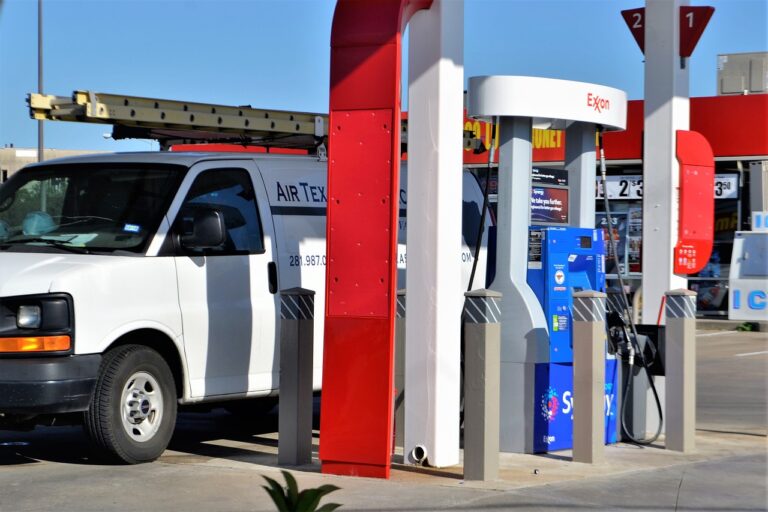The Future of Hydrogen Fuel Cell Vehicles: Challenges and Opportunities
Fuel cell technology is a promising alternative to traditional combustion engines, offering a cleaner and more sustainable way to power vehicles. Hydrogen fuel cells generate electricity through an electrochemical process that combines hydrogen and oxygen, producing water as the only byproduct. This efficient method not only reduces greenhouse gas emissions but also eliminates harmful pollutants, contributing to a cleaner environment.
One of the key components of a hydrogen fuel cell is the proton exchange membrane, which allows protons to pass through while blocking electrons, creating an electric current. This membrane is essential for the efficient operation of the fuel cell, enabling the conversion of hydrogen into electricity to power the vehicle. With advancements in technology and infrastructure, hydrogen fuel cells have the potential to revolutionize the automotive industry by providing a sustainable and environmentally friendly mode of transportation.
Current Challenges in Implementing Hydrogen Fuel Cell Vehicles
One significant challenge facing the widespread implementation of hydrogen fuel cell vehicles is the lack of a comprehensive refueling infrastructure. Unlike gasoline stations that are prevalent, hydrogen refueling stations are limited in number and concentrated in certain regions. This restricts the mobility and convenience of hydrogen fuel cell vehicle owners, making it less practical for everyday use.
Another obstacle to the adoption of hydrogen fuel cell vehicles is the high cost associated with producing and maintaining the technology. The production of fuel cells and hydrogen storage systems involves expensive materials and complex processes, driving up the overall cost of these vehicles. Additionally, the lack of economies of scale in manufacturing these components further contributes to the high price tag of hydrogen fuel cell vehicles, deterring potential buyers.
Limited number and concentration of hydrogen refueling stations
Restricts mobility and convenience for hydrogen fuel cell vehicle owners
Less practical for everyday use
High cost of producing and maintaining fuel cells and storage systems
Expensive materials and complex processes involved in production
Lack of economies of scale in manufacturing components
Deters potential buyers due to high price tag
Advantages of Hydrogen Fuel Cell Vehicles
Hydrogen fuel cell vehicles offer a promising solution to reduce greenhouse gas emissions and dependence on fossil fuels in the transportation sector. Unlike conventional vehicles, hydrogen fuel cell vehicles produce zero tailpipe emissions, contributing to cleaner air quality and a healthier environment. This technology also holds the potential to decrease carbon dioxide emissions significantly, mitigating the impact of climate change.
In addition to their environmental benefits, hydrogen fuel cell vehicles boast quicker refueling times compared to electric vehicles, offering a more convenient experience for drivers. Furthermore, these vehicles provide a longer driving range on a single tank of hydrogen, addressing the issue of range anxiety often associated with battery-powered electric vehicles. This extended range makes hydrogen fuel cell vehicles a viable option for long-distance travel, offering drivers increased flexibility and peace of mind on the road.
What is a hydrogen fuel cell vehicle?
A hydrogen fuel cell vehicle is a type of electric vehicle that uses a fuel cell to convert hydrogen into electricity to power the vehicle.
How does a hydrogen fuel cell work?
A hydrogen fuel cell works by combining hydrogen fuel with oxygen from the air to produce electricity, heat, and water as byproducts.
What are the advantages of hydrogen fuel cell vehicles?
Some advantages of hydrogen fuel cell vehicles include zero emissions, longer driving range compared to battery electric vehicles, fast refueling times, and potential for using renewable hydrogen as a fuel source.
Are there any challenges in implementing hydrogen fuel cell vehicles?
Yes, some challenges in implementing hydrogen fuel cell vehicles include the high cost of production, limited infrastructure for hydrogen refueling stations, and the need to increase the availability of renewable hydrogen sources.
How do hydrogen fuel cell vehicles compare to traditional gasoline vehicles?
Hydrogen fuel cell vehicles are more environmentally friendly as they produce zero emissions, have similar driving ranges to gasoline vehicles, and can be refueled quickly like traditional vehicles.





